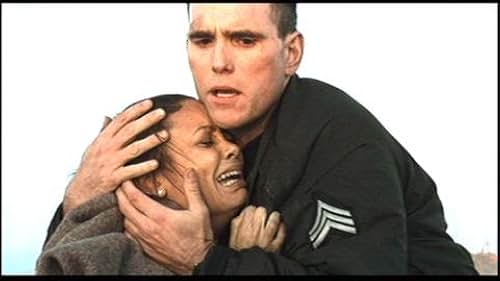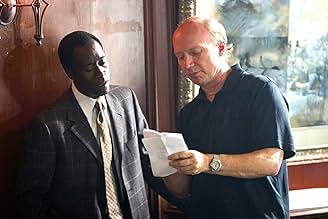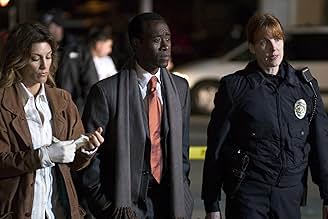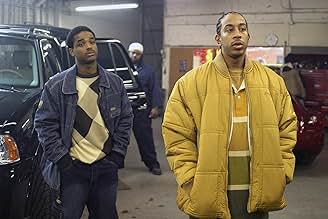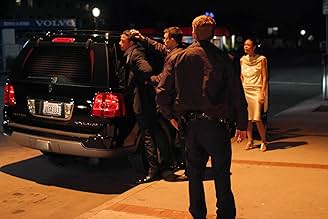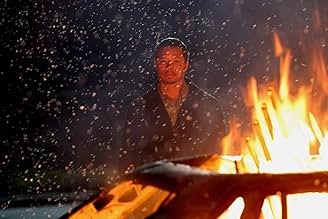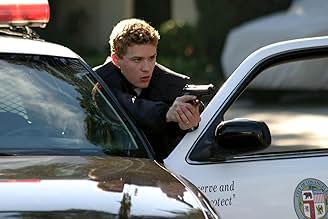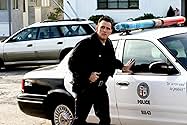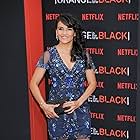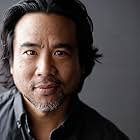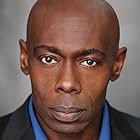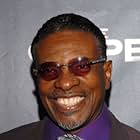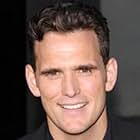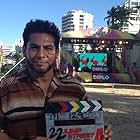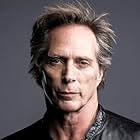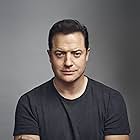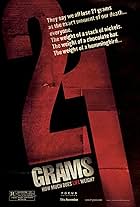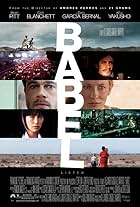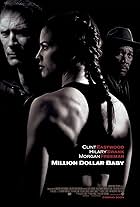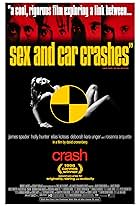Des citoyens de Los Angeles à vies complètement diverses se heurtent dans des histoires entrelacées de race, de perte et de rédemption.Des citoyens de Los Angeles à vies complètement diverses se heurtent dans des histoires entrelacées de race, de perte et de rédemption.Des citoyens de Los Angeles à vies complètement diverses se heurtent dans des histoires entrelacées de race, de perte et de rédemption.
- Récompensé par 3 Oscars
- 66 victoires et 112 nominations au total
Thandiwe Newton
- Christine
- (as Thandie Newton)
Eddie J. Fernandez
- Officer Gomez
- (as Eddie Fernandez)
Best Picture Winners by Year
Best Picture Winners by Year
See the complete list of Best Picture winners. For fun, use the "sort order" function to rank by IMDb rating and other criteria.
Histoire
Le saviez-vous
- AnecdotesPaul Haggis holds the distinction of being the only person ever to write the screenplay for two consecutive Best Picture winners. He also wrote the previous year's Best Picture winner, Million Dollar Baby (2004).
- GaffesPartway through Officer Ryan's rescue of Christine from her overturned SUV, the camera ran out of film, as evidenced by film sprocket holes appearing in the frame. This is an acknowledged goof from director Paul Haggis.
- Citations
[first lines]
Graham: It's the sense of touch. In any real city, you walk, you know? You brush past people, people bump into you. In L.A., nobody touches you. We're always behind this metal and glass. I think we miss that touch so much, that we crash into each other, just so we can feel something.
- Crédits fousProducers gratefully acknowledge the valuable assistance of The Culbert Family; Members of the Actors Gym, Hollywood, California.
- Versions alternativesThe two-disc director's cut DVD features an additional two minutes of dialogue and footage
- ConnexionsFeatured in 'Crash' Featurette (2005)
- Bandes originalesCity of Angel
Written by Sungsoo Kim
Published by Nirvana Music
Performed by Sungsoo Kim
Courtesy of Cats Records
Commentaire à la une
"Crash" is a complex movie with a simple premise: set in Los Angeles it follows 8 main characters (and many, many more supporting) from all walks of life and races whose lives intersect at some point during one 24 hour period. These people are all different yet all alienated, to the point of breaking, so much so that when they come together, things explode.
The complexity of the film comes from the encounters between characters and their tangled lives and worlds. Haggis' screenplay is so intricate and delicately written I couldn't begin to try to summarize the actual plot line (which destines this article to be kind of vague), but everyone meets everyone else at some point in the film (and there are a whole lot of characters). Sufficed to say these meetings are variably intense, casual, fleeting, dangerous, but they all effect the participants in profound and provocative ways, causing lives to find enlightenment or swerve violently, and watching it all unfold is mesmerizing because Paul Haggis (Oscar Nominated writer of Million Dollar Baby) made the film meaty with messy characters and topics and stories to chew and hurtle along with.
The all-encompassing theme of the film is racism, and it is dealt with bluntly, honestly, and without reservation. Every single character participates in the perpetuation of the ugly cycle but also suffers because of it. Where racism makes for an interesting enough subject for an already provoking and fairly experimental film (I was surprised to see this get wide release), it's only the catalyst for a deeper, resounding story of redemption and the universality of our lonely situation which the movie becomes during its second hour (what you could call Act II). It switches from a somewhat depressing contemplative amalgamation of moments about racism in everyday life and how destructive it is, to a throbbing, intense web of choices and consequences -- life and death, vivifying or soul killing -- and the chance at redemption.
Following their actions in Act I, everyone meets a fork in the road or is given a second chance of some sort. Some take it, some don't, but regardless, by the end of the movie everyone has changed. This is what gives the movie wings during its second hour, makes it interesting, keeps you guessing and on knife's-edge. It also gives the characters depth and souls and shows that despite perceived and upheld differences, when it comes down to it we aren't different (which we see in a shattering scene between Ryan Philippe and Larenz Tate after Tate notices that he and Philippe have the same St. Christopher statue), in fact we desperately need each other. It's one of the few films I've seen where everyone is at fault somehow and yet there are no villains. It makes it hopeful, particularly with something as ugly as racism: everyone's fallible, but everyone has the capacity for good and nobility. That said, each of these character's inner struggles makes for all the conflict and resolution you need.
A talented ensemble drives the film, sharing almost equal amounts of screen time, but the folks who really stood out and had my full attention each time were Terrence Howard (plays a TV director), Matt Dillon (as a patrol cop), Sandra Bullock (a rich housewife), , Don Cheadle (a detective), and Michael Peña (a locksmith). These five gave deeply, deeply felt performances portraying a wide range of emotions and personal situations, giving souls -- alone, yearning, and searching in a world that doesn't seem to care -- to shells of imperfect people. But the actors triumph in little moments of human contact: a glance, an embrace, a pause, a smile, a wince, things that breath the film to life and with simple visuals give it profundity. This is beautifully illustrated in a small scene between the downward spiraling Jean (Sandra Bullock) and her maid after she's begun to realize all her problems may not be about the two black guys who car jacked her, but her own life.
Some closing notes: it's obvious it's a debut. At times the dialogue and acting can be stilted and unnatural; some of the initial "racial" situations seem forced; certain scenes could have used some editing or fine tuning, but by the end I didn't care. It also may be helpful to know that the first hour spends its time setting everything up for Act II, although it will seem more like a photo essay on racism than a setup. But by the time Act I ends you're ready for something substantial to happen, and at the perfect moment, stuff happens. I was entirely satisfied with this movie, I couldn't have asked for anything more. Still it's impressive, with his debut Haggis made a film that magically maintains a storytelling balancing act about people's lives that almost seamlessly flows, takes an honest look at racism with an understanding of mankind, a belief in redemption, and even hope. As I walked out of the theater into the rainy night it resonated with me and colored my thoughts as I made my way through the crowds of unknown fellow people filling the cinema. That's about all I can ask for in a film.
The complexity of the film comes from the encounters between characters and their tangled lives and worlds. Haggis' screenplay is so intricate and delicately written I couldn't begin to try to summarize the actual plot line (which destines this article to be kind of vague), but everyone meets everyone else at some point in the film (and there are a whole lot of characters). Sufficed to say these meetings are variably intense, casual, fleeting, dangerous, but they all effect the participants in profound and provocative ways, causing lives to find enlightenment or swerve violently, and watching it all unfold is mesmerizing because Paul Haggis (Oscar Nominated writer of Million Dollar Baby) made the film meaty with messy characters and topics and stories to chew and hurtle along with.
The all-encompassing theme of the film is racism, and it is dealt with bluntly, honestly, and without reservation. Every single character participates in the perpetuation of the ugly cycle but also suffers because of it. Where racism makes for an interesting enough subject for an already provoking and fairly experimental film (I was surprised to see this get wide release), it's only the catalyst for a deeper, resounding story of redemption and the universality of our lonely situation which the movie becomes during its second hour (what you could call Act II). It switches from a somewhat depressing contemplative amalgamation of moments about racism in everyday life and how destructive it is, to a throbbing, intense web of choices and consequences -- life and death, vivifying or soul killing -- and the chance at redemption.
Following their actions in Act I, everyone meets a fork in the road or is given a second chance of some sort. Some take it, some don't, but regardless, by the end of the movie everyone has changed. This is what gives the movie wings during its second hour, makes it interesting, keeps you guessing and on knife's-edge. It also gives the characters depth and souls and shows that despite perceived and upheld differences, when it comes down to it we aren't different (which we see in a shattering scene between Ryan Philippe and Larenz Tate after Tate notices that he and Philippe have the same St. Christopher statue), in fact we desperately need each other. It's one of the few films I've seen where everyone is at fault somehow and yet there are no villains. It makes it hopeful, particularly with something as ugly as racism: everyone's fallible, but everyone has the capacity for good and nobility. That said, each of these character's inner struggles makes for all the conflict and resolution you need.
A talented ensemble drives the film, sharing almost equal amounts of screen time, but the folks who really stood out and had my full attention each time were Terrence Howard (plays a TV director), Matt Dillon (as a patrol cop), Sandra Bullock (a rich housewife), , Don Cheadle (a detective), and Michael Peña (a locksmith). These five gave deeply, deeply felt performances portraying a wide range of emotions and personal situations, giving souls -- alone, yearning, and searching in a world that doesn't seem to care -- to shells of imperfect people. But the actors triumph in little moments of human contact: a glance, an embrace, a pause, a smile, a wince, things that breath the film to life and with simple visuals give it profundity. This is beautifully illustrated in a small scene between the downward spiraling Jean (Sandra Bullock) and her maid after she's begun to realize all her problems may not be about the two black guys who car jacked her, but her own life.
Some closing notes: it's obvious it's a debut. At times the dialogue and acting can be stilted and unnatural; some of the initial "racial" situations seem forced; certain scenes could have used some editing or fine tuning, but by the end I didn't care. It also may be helpful to know that the first hour spends its time setting everything up for Act II, although it will seem more like a photo essay on racism than a setup. But by the time Act I ends you're ready for something substantial to happen, and at the perfect moment, stuff happens. I was entirely satisfied with this movie, I couldn't have asked for anything more. Still it's impressive, with his debut Haggis made a film that magically maintains a storytelling balancing act about people's lives that almost seamlessly flows, takes an honest look at racism with an understanding of mankind, a belief in redemption, and even hope. As I walked out of the theater into the rainy night it resonated with me and colored my thoughts as I made my way through the crowds of unknown fellow people filling the cinema. That's about all I can ask for in a film.
Meilleurs choix
Connectez-vous pour évaluer et suivre la liste de favoris afin de recevoir des recommandations personnalisées
Détails
- Date de sortie
- Pays d’origine
- Site officiel
- Langues
- Aussi connu sous le nom de
- Alto impacto
- Lieux de tournage
- 3500 S. Gaffey Street, San Pedro, Los Angeles, Californie, États-Unis(overturned car accident)
- Sociétés de production
- Voir plus de crédits d'entreprise sur IMDbPro
Box-office
- Budget
- 6 500 000 $US (estimé)
- Montant brut aux États-Unis et au Canada
- 54 580 300 $US
- Week-end de sortie aux États-Unis et au Canada
- 9 107 071 $US
- 8 mai 2005
- Montant brut mondial
- 98 410 061 $US
- Durée1 heure 52 minutes
- Couleur
- Mixage
- Rapport de forme
- 2.35 : 1
Contribuer à cette page
Suggérer une modification ou ajouter du contenu manquant

